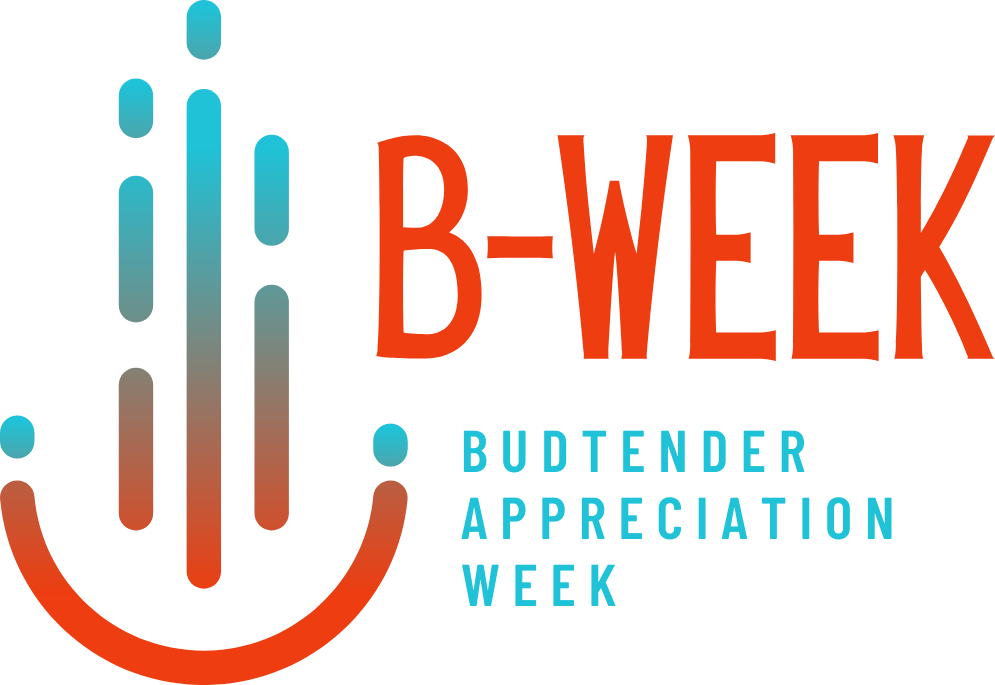
“A diagnosis of a brain tumor is probably one of the most frightening conversations that you can have with your doctor,” begins Mara Gordon.
Gordon is the founder of Aunt Zelda’s, a company which creates specialized blends of cannabis supplements for medical cannabis patients.
Over the past eight years, thousands of California cannabis patients have made appointments with the Aunt Zelda’s team to manage many different and complex medical conditions with cannabis.
But, it’s cancer patients who make up a large portion of the Aunt Zelda’s clientele.
“We don’t know a lot of people walking around years and years later after a diagnosis of brain cancer,” explains Gordon in a Green Flower segment. “The traditional treatments just do not work that well.”
Toward a New Approach

Cancers of the brain pose a particularly difficult challenge to oncologists.
Surgery, targeted radiation therapies, and advancements in chemotherapy have dramatically improved the outlook for cancer patients.
And yet, cancers of the brain still pose a significant challenge to oncologists, for one primary reason: many conventional chemotherapy drugs have difficulty making it into the brain.
The brain is protected by a blood-brain barrier, which is a protective blockade that lines blood vessels in the brain. This blockade is excellent for keeping pathogens and toxic compounds away from the vital organ.
However, the barrier can also prevent essential medicines, like chemotherapy drugs, from successfully making it to the targeted treatment areas.
For this reason, continuing research is vital for improved patient outcomes in the future. Apart from continued advancements in prevention and early screening, finding medicines that can effectively cross the blood-brain barrier is one potential research avenue.
Developing ways to deliver chemotherapy drugs to the brain effectively holds potential in enhancing the lives and improving outcomes in patients with brain cancers.
Amazingly, early research suggests that cannabinoids, the natural compounds found in the cannabis plant, stand a fighting chance at success.
The Nascent Science of Cannabis for Brain Cancer

The American State of California first legalized medical cannabis in 1997. For the first time, patients with serious diseases, including cancer, had compassionate access to cannabis to ease symptoms of often devastating illnesses.
It is now widely accepted that cannabis can be used to ease suffering related to chemotherapy and other cancer-related symptoms. In the early 2000s, however, researchers began to question whether or not the herb could do something more.
Researchers in Israel, Spain, and various pockets of the world began to test the effects of isolated cannabis compounds on brain cancer cells cultivated in the laboratory.
The experiments were successful; cannabis compounds killed cancer cells outside of the body.
Next came animal trials, which were also successful. Cannabis compounds are small enough to cross the blood-brain-barrier, accessing tumor cells in a way that is often nearly impossible.
But, there’s a downside.
Cannabis research comes with one major caveat: most studies are conducted in Petri dishes and on rodents, not in human patients. Further, researchers test cannabis compounds on individual types of cancer, and not all tests garnered the same results.
Due to decades of legal research restrictions around the globe, experiments and trials of cannabis medicines in humans were nearly impossible.
It is only thanks to the recent public pushes for cannabis reform around the world that policy supporting cannabis science is beginning to change.
After positive results in early studies, British scientists got the go-ahead to continue with a small human trial.
Cannabis Medicines on Trial

In 2017, researchers treated cancer patients with cannabis-derived medicine for the first time. In the early proof-of-concept trial, 21 patients with an aggressive form of brain cancer, called glioblastoma multiforme, received a pharmaceutical drug made from cannabis extracts.
Glioblastoma multiforme is a very fast-growing and unruly form of cancer, causing tumors to develop in glial cells. Glial cells build a type of scaffolding around more famous cells called neurons.
Patients with this form of brain cancer often receive an equally aggressive treatment protocol, including surgery, radiation, and chemotherapy. Even still, only an estimated 20 percent of patients experience long-term tumor control.
Worse yet, the average life expectancy for patients with this type of cancer is a mere 15 to 16 months.
In the trial, however, patients treated with the cannabis-based medicine appeared to have an advantage—they lived longer than those treated with chemotherapy and a placebo.
An additional six months, in fact.
GW Pharmaceuticals, a British biopharmaceutical company, conducted the trial. The company specializes in cannabis medicines and already has two successful cannabis-based pharmaceuticals on the market; one for the treatment of multiple sclerosis, and the other for epilepsy.
While many different life science companies are popping up to research medicinal cannabis, GW arguably has the most substantial lead on the competition.
The new drug used a combination of tetrahydrocannabinol (THC) and cannabidiol (CBD). THC is more famously known as the compound that causes the classic cannabis “high.”
CBD, on the other hand, is a non-intoxicating phytochemical more well-known for its ability to put a halt to life-threatening seizures.
Patients given cannabis medicine along with the chemotherapy drug, temozolomide, had an 83 percent one-year survival rate compared to those given the placebo, which hovered around 53 percent.
To put this in a more realistic framework, those given the medical cannabis preparation lived for an average of 550 days while the others lived for an average of 369 days.
But, there’s more.
The small study mentioned above isn’t the only human trial conducted on cannabis for glioma. Back in 2006, a group of Spanish researchers tested the effects of THC in nine glioblastoma multiforme patients. Only, this time, THC was delivered through the skull.
In this trial, the patients did not see the same extended survival time as those mentioned in the GW Pharmaceuticals study above. Even still, researchers found evidence that THC administration increased the death of tumor cells.
Repeat: THC seemed to trigger tumor cells to die.
Early Access to Care
Mara Gordon, who has been working on the frontlines of medical cannabis since 2011, tells Green Flower why cannabis medicines are promising for brain cancer:
“We have found that the brain is just filled with CB1 and CB2 receptors,” says Gordon. These receptors are the landing sites for cannabis medicines. They sit on the surface of cells and are triggered by the active components in the cannabis plant.
It is these receptor sites that cause the psychoactive effects of some cannabis strains. The ability of cannabis molecules to engage these receptor sites is also what gives the ancient herb its therapeutic effects.
“So,” Gordon continues, “if your tumor is in your brain, you have a lot to target with cannabinoid therapy.”
The Aunt Zelda’s team are among the few who have witnessed the positive effects of cannabis supplementation on cancer patients firsthand.
“We’ve had people come out of hospice,” says Gordon. “We’ve had people come out of hospice after beginning cannabis treatment because all of a sudden the cancer cells that were growing out of control stop and start reversing that train, going the other way, and shrinking.”
Gordon and her team are not conducting formal clinical trials in the standard way. Instead, the group keeps a detailed record of the medical status of each patient as well as their precise daily dosage of cannabis medicines.
The Aunt Zelda’s team sees thousands of medical cannabis patients each year, despite the lack of hard science on the topic.
Patients who visit Aunt Zelda’s are treated to customized wellness regimens based on experience and the early knowledge gleaned from preliminary studies.
A Long Way from A New Cancer Treatment
While these early trials and reports are promising, they are far from enough to draw any firm conclusions. Cannabis has not been tested as an add-on treatment to chemotherapy in any meaningful way.
Further, the potential positive benefits of the plant are far from universally accepted by medical and scientific communities.
Plus, research thus far has focused intensely on cannabis for glioblastoma. There are many different types of brain cancers, and the herb may not have the same anti-proliferative effect in all of them.
Even the informal data gathered by the Aunt Zelda’s team indicates that cannabis seems to be more helpful for some patients than in others.
“There is one [type of brain cancer] that is called DIPG,” Gordon tells Green Flower, “and DIPG is in the brainstem. Unfortunately, there are just not [enough of the] CB1 receptors for the cannabinoids to activate in the brainstem, so it can be a lot more devastating.”
The potential anti-cancer ability of the cannabis plant is both astounding and exciting. It is crucial, however, to acknowledge that cannabis-based cancer medicines are still hopeful aspirations for the future.
Early experiments may seem promising, but they are far from comprehensive or conclusive. Doctors and scientists are still a long ways away from figuring out whether or not cannabis works as an anti-cancer tool. Let alone from developing ready-to-use cannabis medicines for patients to take now.
In the meantime, resources like Aunt Zelda’s are helping patients use the plant most efficiently. Even in difficult-to-treat DIPG, Gordon sees promise.
“We have found extended life and far, far greater quality of life when treating it with traditional medicine along with cannabinoids.”
– This article was originally posted at Green Flower
About CannabisNewsWire
CannabisNewsWire (CNW) is an information service that provides (1) access to our news aggregation and syndication servers, (2) CannabisNewsBreaks that summarize corporate news and information, (3) enhanced press release services, (4) social media distribution and optimization services, and (5) a full array of corporate communication solutions. As a multifaceted financial news and content distribution company with an extensive team of contributing journalists and writers, CNW is uniquely positioned to best serve private and public companies that desire to reach a wide audience of investors, consumers, journalists and the general public. CNW has an ever-growing distribution network of more than 5,000 key syndication outlets across the country. By cutting through the overload of information in today’s market, CNW brings its clients unparalleled visibility, recognition and brand awareness. CNW is where news, content and information converge.
To receive instant SMS alerts, text CANNABIS to 21000 (U.S. Mobile Phones Only)
For more information please visit https://www.cannabisnewswire.com
Please see full terms of use and disclaimers on the CannabisNewsWire website applicable to all content provided by CNW, wherever published or re-published: http://CNW.fm/Disclaimer
Do you have a questions or are you interested in working with CNW? Ask our Editor
CannabisNewsWire (CNW)
Denver, Colorado
www.cannabisnewswire.com
303.498.7722 Office
Editor@CannabisNewsWire.com
This article contains Third-Party Content submitted by third parties, including articles submitted through the CNW Premium Partnership Program. All opinions, statements and representations expressed by such third parties are theirs alone and do not express or represent the views and opinions of CNW or its affiliates and owners. Content created by third parties is the sole responsibility of such third parties, and CNW does not endorse, guarantee or make representations concerning the accuracy and completeness of all third-party content. You acknowledge that by CNW providing you with this internet portal that makes accessible to you the ability to view third-party content through the CNW site, CNW does not undertake any obligation to you as a reader of such content or assume any liability relating to such third-party content. CNW expressly disclaims liability relating to such third-party content. CNW and its members, affiliates, successors, assigns, officers, directors, and partners assume no responsibility or liability that may arise from the third-party content, including, but not limited to, responsibility or liability for claims for defamation, libel, slander, infringement, invasion of privacy and publicity rights, fraud, or misrepresentation, or an private right of action under the federal securities laws of the United States or common law. Notwithstanding the foregoing, CNW reserves the right to remove third-party content at any time in its sole discretion.



















